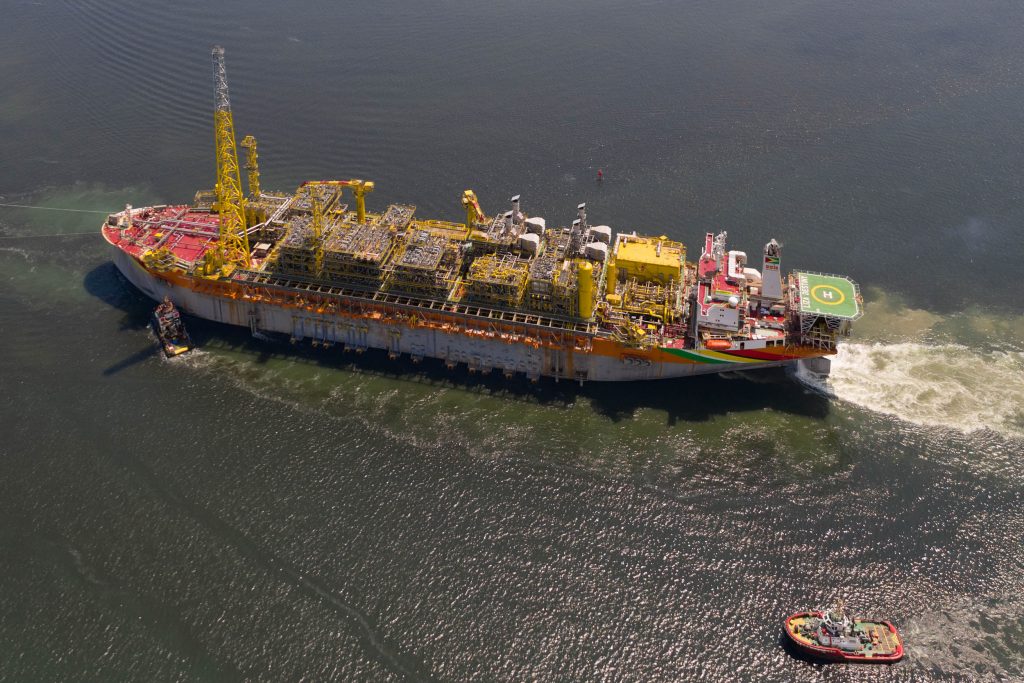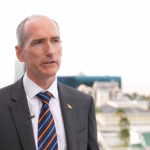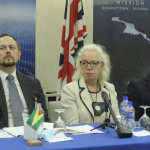
Notwithstanding major developments in the Stabroek Block resulting in the discovery of billions of barrels in oil, ExxonMobil remains resolute in its position that the 2016 Production Sharing Agreement (PSA) that it signed with Guyana should not be altered to reflect a higher royalty.
There have been calls for a renegotiation of the contract, to allow Guyana to benefit more, now that more oil is being discovered.
However, the President of ExxonMobil Guyana, Alistair Routledge has warned that any changes to the agreement could be “destructive” in the longterm.
“What is incredibly important for any country or any in any business is that there is stability. We’ve made now over $30 billion worth of investment, committed to the country, based on the contract as it stands. To change the contract when you’ve already made that level of commitment would be very destructive to investor confidence in the Stabroek Block and I would suspect more widely,” Mr Routledge told reporters.
In 2022, of the 102 lifts of crude oil generated from Guyana’s Floating Production Storage and Offloading (FPSO) vessels, 13 went to the Government, and according to the Finance Minister, Dr Ashni Singh, just over US$1B was injected into the country’s Natural Resource Fund (NRF) from profit oil in 2022 and US$155.2M in royalty payments from ExxonMobil and its co-ventures.
For some, the 2016 PSA has placed Guyana at the bitter end of the stick and therefore, should be amended. But for ExxonMobil, Guyanese are benefiting significantly from the deal.

“Guyanese are benefiting more than the investors. It’s very clear under the Stabroek Block Production Sharing Agreement, 50% of the profit goes to the country and 50% to the investors. But then in addition to that, there’s a 2% royalty which comes out of the contractor’s share, the investors’ share of the revenues from the profit. So, in essence 52% goes to the country,” he explained.
Mr Routledge said it is not unusual for an investor coming to develop a country’s resources to give that country a bigger share of the revenue.
He said the exploration and development of oil resources in any country is a major investment, and that brings with it many risks. Mr Routledge pointed out that at the time the PSA was signed in 2016, the company had only made a single discovery in the Liza Field, but the company took the risk nonetheless and invested hundreds of millions of US dollars.
“So, we accept a lot of risk when we do this. Some of those paid off and Stabroek Block is a great example where we have done well, we’ve discovered a lot but the terms continue to incentivize investment which is very important for the country,” Mr Routledge said.
He noted that developments in other blocks have not been as successful as the Stabroek Block.
In the Stabroek Block, the company is producing more than 380,000 barrels of oil per day utilizing the Liza Destiny and Liza Unity FPSOs, and with three additional FPSOs in the pipeline and the development of other fields, the company is hoping to produce 1 million barrels of oil per day by 2027.
But even with such major successes, the company is not prepared to agree to a higher royalty.
“I mean at the end of the day the projects are not getting any easier? So yes, we have line of sight number six. You see, the costs on the world market are inflating. Number seven, we don’t have full line of sight. We’ve mentioned the discovery in the fangtooth area. We have a very active exploration appraisal going on in that area, but it’s a slightly different resource a little bit deeper. We don’t have the same surety yet that we can actually make that work. So it would be premature to even think about that,” he explained.
The Government has also not expressed any favour for renegotiating the oil contract. It has said it is important to maintain the sanctity of the contract until the life of the agreement comes to an end.



















You must be logged in to post a comment Login